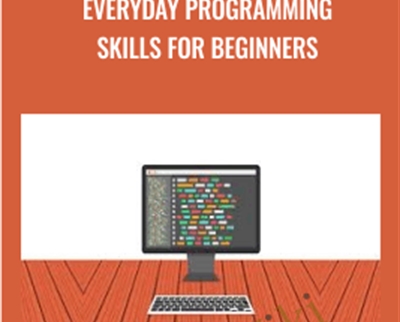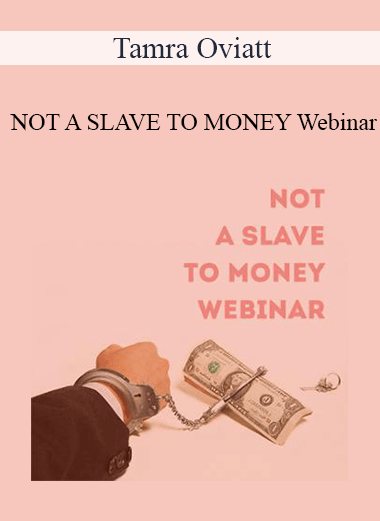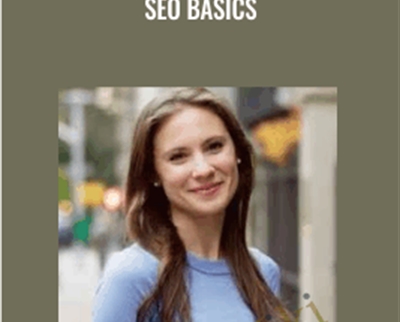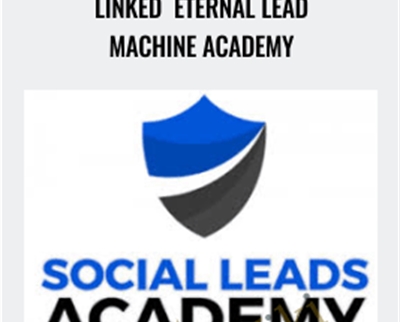Buy Everyday Programming Skills for Beginners – EDUmobile Academy Course at GBesy. We actively participate in Groupbuys and are committed to sharing knowledge with a wider audience. Rest assured, the quality of our courses matches that of the original sale page. If you prefer, you can also buy directly from the sale page at the full price (the SALEPAGE link is directly provided in the post).
Salepage link: At HERE. Archive: http://archive.is/wip/R2SEv
$195 $34 – Everyday Programming Skills for Beginners – EDUmobile Academy
Everyday Programming Skills for Beginners
Learn most popular programming languages with easy to understand examples
This course covers all leading programming languages, starting with C, C++, Java, JavaScript, Python, PHP, Ruby and Swift2
You are meant to watch 1 hour per day for 14 days. This is a commitment you must set aside before you start this course.
We will start with C and C++ programming language. We’ll start with data types of C, then quickly dispel the mystery (and fright) that surrounds C’s most powerful element, the pointer. Understanding pointers first allows us to grasp the underlying nature of arrays and structs, parameters passed by reference, and many other things hidden by other languages but exposed in C.
Then we will move to streams in C++ , which simplify input and output a great deal.
Then we will start with PHP where we will cover basic syntax, variables, loops and decision constructs. Then we will learn object oriented features along with string functions. After this we will move to arrays then after understand how REQUEST, GET, and POST works with server variables. Next will be how to connect to MySQL database.
JavaScript is a programming language that can be run by all modern web browsers. It is downloaded alongside the HTML code of a webpage. Unlike HTML, which can only be used to display content, JavaScript allows web designers to add functionality and interactivity to their websites.
We will begin the Python section by installing the Python 3 interpreter. We will look at how to run the interpreter in the command line, as well as how to execute our Python source files.
After that, we will learn about how to manipulate some basic data types. We will learn about how use Python to do simple arithmetic. Then, we will learn about working with words and characters, using a data type known as the “string”. We will also cover the Boolean type, which is a representation of True and False inside of a programming language.
In Ruby section we will learn how to run Ruby interactively at the command prompt. Then understand variable, constant, variables, methods, classes and control structures. We will also cover attribute specifiers, then learn implementing inheritance and how method access in Ruby works.
Next section covers version 2 of the Swift language. Swift is a powerful language used to develop applications for iPhone, iPad, and OS X. In this course, you’ll learn about Xcode 7 (Apple’s integrated development environment), and learn to write short programs in Swift, which will prepare you to start learning to develop full applications for Macs and Apple’s mobile devices.
I hope you’ll join us for this exciting course.
Course Curriculum
Beginning of C
- 001 – Finding and Installing the GCC Compiler (2:31)
- 002 – Basic Syntax and Hello World Program (8:38)
- 003 – C Language Primitive Types (6:36)
- 004 – Arithmetic Operators, Part 1 (5:55)
- 005 – Arithmetic Operators, Part 2 (6:49)
- 006 – Man Documentation and the Size of Function (6:12)
Arrays, Pointer and Conditional Expressions
- 001 – Conditional Expressions and Comparison (10:32)
- 002 – Boolean Operators Demo (6:48)
- 003 – If, if..else, if..else if..else (8:33)
- 004 – Arrays Part 1 (4:55)
- 005 – Arrays Part 2 (7:43)
- 006 – Introducing Pointers (8:11)
- 007 – First Pointer Demo (9:57)
Functions and Loops
- 001 – While, do, and for loops (4:43)
- 002 – Introduction to Functions (8:34)
- 003 – Pass by Value and Pass by Reference (7:27)
- 004 – Demo Pass by Value and Pass by Reference (5:10)
- 005 – Using Scanf for Input (7:39)
- 006 – Using the GCC Function List (5:21)
- Link to GNU C Functions
Pointers and Structures
- 001 – Pointer Arithmetic (4:06)
- 002 – Finding Max and Min with Pointer Arithmetic (13:51)
- 003 – Structures, the Stack, and the Heap (7:25)
- 004 – Demo of Structures (7:41)
More on Stack, Queue and Doubly List
- 001 – Linked List (7:08)
- 002 – Stack Demo Basic Operations (11:46)
- 003 – A Simple Stack Based Command Interpreter (7:05)
- 004 – Queue Demo Basic Operations (5:13)
- 005 – A Simple Queue Based Task List (3:33)
- 006 – Doubly Linked List (10:56)
Introduction to C++
- 001 – Introduction (7:18)
- 002 – Primitive Data Types in C++ (6:06)
- 003 – Namespaces and Resolving Scope (7:11)
- 004 – Basic Console IO (7:31)
- 005 – Getting an Entire Input Line (2:19)
- 006 – Initialization and Intro to the String Class (8:02)
Functions, stringstreams and more
- 001 – stringstreams Topic (5:52)
- 002 – File Input and Output (6:35)
- 003 – Using file Input (3:49)
- 004 – Functions (12:11)
Templates and Classes
- 001 – Without Templates (2:50)
- 002 – Function Templates (7:30)
- 003 – Explicit Function Template Instantiation (5:27)
- 004 – Intro to Classes (8:49)
- 005 – Using Destructors (4:08)
Introduction to Java
- 001 – Downloading Java (2:03)
- 003 – IntelliJ IDEA Overview (3:00)
- 002 – Downloading IntelliJ IDEA (1:53)
Classes and Objects
- 001 – The Main Class Demo (6:15)
- 002 – Output Demo (5:53)
- 003 – Input Demo (6:36)
- 004 – Preview of Classes, Finding Information about a Class (5:02)
Properties with Modifiers
- 002 – Data Types (4:01)
- 001 – Classes and Objects (5:50)
- 003 – Modifiers (6:33)
Methods and Static Properties
- 001 – Class Modifiers and Subclassing (9:10)
- 002 – Final Classes (2:34)
- 003 – Method Syntax, Getters and Setters (7:34)
- 004 – Static Properties and Methods (4:02)
Conditionals and Loops
- 001 – If Statement (4:36)
- 002 – if..else, if..else if .. else Statements (4:56)
- 003 – Switch Statement (4:48)
- 004 – While and do..while loops (4:47)
- 005 – Infinite loops (1:45)
- 006 – for loop (5:01)
Interfaces in Java
- 001 – What is an interface (4:23)
- 002 – Declaring and using Interfaces (6:20)
- 003 – Casting (4:40)
- 004 – Interface Example using downcasting from Object (8:36)
Arrays – Composite Types
- 001 – Overview of Arrays (4:03)
- 002 – Declaring and Using Arrays (6:43)
- 003 – Some Useful Methods of the Arrays Class (3:12)
- 004 – Using the for-each (for-in) loop (6:24)
Arrays – Collections
- 001 – Collections, ArrayList Discussion (4:03)
- 002 – Demo of Array Lists (5:17)
- 003 – HashMaps Discussion (3:07)
- 004 – Demo of Hash Maps (4:37)
Introduction to JavaScript
- 001 – Course Overview (3:38)
- 002 – Basic Setup (6:09)
JavaScript Variables and Primitive Types
- 002 – Variables Demo (4:45)
- 001 – Numbers Demo (5:47)
- 003 – Strings Demo (6:09)
- 004 – String Methods Demo (6:26)
JavaScript Object Types
- 003 – Objects in Javascript (6:39)
- 001 – Javascript Arrays (5:38)
- 002 – Javascript Functions (6:46)
JavaScript Control Flow
- 001 – Conditionals (7:36)
- 003 – Errors (7:54)
- 002 – Looping (6:57)
JavaScript Document Object Model (DOM)
- 001 – Elements and Attributes (7:31)
- 003 – Function Calculator Exercise (8:59)
- 002 – Events (7:26)
Introduction to Python
- 00 – Course Overview (2:03)
- 01 – Setting up Python (4:42)
Variables and Basic Data Types
- 01 – Numbers (6:26)
- 02 – Variables and order of operation (7:54)
- 03 – Strings Part 1 (6:19)
- 04 – Strings Part 2 (7:06)
- 05 – String methods and formatting Part 1 (6:50)
- 06 – String methods and formatting Part 2 (6:17)
- 07 – Booleans (6:10)
Complex Data Types
- 02 – Lists (6:36)
- 01- Tuples (6:38)
- 03 – Dictionaries (7:48)
- 04 – Objects (9:25)
Control Flow
- 01 – If Statements Part 1 (6:02)
- 02 – If Statements Part 2 (5:29)
- 03 – For Loop (6:58)
- 04 – While loop (6:27)
- 05 – Functions Part 1 (7:00)
- 06 – Functions Part 2 (8:35)
- 07 – Exceptions Part 1 (8:12)
- 08 – Exceptions Part 2 (11:07)
Basic Programming Exercises
- 01 – Volume Calculator (12:49)
- 02 – Sum of Multiples (13:58)
- 03 – Multiplication Table (13:23)
Introduction to PHP
- 001 – Introduction to PHP Requirements (7:11)
- 002 – Getting XAMPP and Brackets Starting Server (2:35)
- 003 – First PHP Script (5:53)
- 004 – Variable in PHP (5:00)
- 005 – If, if else, if else if…, Switch (10:02)
- 006 – While, Do While, For, Foreach (9:13)
Object Oriented Features
- 001 – Functions in PHP (5:42)
- 002 – Require Include and some String Functions (9:13)
- 003 – Classes Overview (7:09)
- 004 – Scoping Rules and the Global Keyword (3:35)
- 005 – Static Properties (9:26)
Arrays and Variables
- 001 – Arrays in PHP (10:35)
- 002 – $_SERVER Variables in PHP (5:55)
- 003 – $_GET in PHP (4:08)
- 004 – $_POST in PHP (2:49)
- 005 – $_REQUEST in PHP (3:56)
PHP with MySQL Database
- 001 – Using PHPMyAdmin (5:01)
- 002 – Sample Database (1:59)
- 003 – Connecting to MySQL (5:11)
- 004 – Inserting to MySQL, and Wrapup (6:47)
Introduction to Ruby
- 001 – Getting Ruby Editors (2:33)
Hello World and Basic Features
- 001 – Hello World with Puts and Gets (5:47)
- 002 – Interactive Ruby Prompt with int, float & string (8:02)
- 003 – Variables and Constants (6:16)
- 004 – Conditions in Ruby with If, elsif, and else (7:34)
- 005 – If and unless Statement Modifiers (3:49)
- 006 – Special Variable Types in Ruby ($ @ and @@) (5:51)
- 007 – Loops in Ruby (10:27)
Arrays and Methods in Ruby
- 001 – Arrays in Ruby (8:39)
- 002 – Hashes in Ruby (3:19)
- 003 – Method Syntax in Ruby (8:04)
- 004 – Block Syntax in Ruby (8:04)
Classes Properties and Methods in Ruby
- 001 – Classes, Properties and Methods (10:15)
- 002 – Attributes in Ruby (6:28)
- 003 – Inheritance in Ruby (5:57)
- 005 – Method Access demo (7:26)
- 004 – Method Access Discussion (5:59)
Getting Started with Swift 2 and Xcode 7
- 001 – Introduction (6:10)
- 002 – The Xcode Interface – Part 1 (7:39)
- 003 – The Inspector Panel – Interface – Part 2 (7:32)
- 004 – The Editor – Interface – Part 3 (7:03)
- 005 – Hello World App – Part 1 (4:48)
- 006 – Hello World App – Part 2 (8:20)
- 007 – Hello World App – Part 3 (7:43)
$195 $34 – Everyday Programming Skills for Beginners – EDUmobile Academy
Buy the Everyday Programming Skills for Beginners – EDUmobile Academy course at the best price at GBesy.. After your purchase, you will get access to the downloads page. You can download all the files associated in your order at here and we will also send a download notification email via your mail.
Unlock your full potential with Everyday Programming Skills for Beginners – EDUmobile Academy courses. our courses are designed to help you excel.
Why wait? Take the first step towards greatness by purchasing Everyday Programming Skills for Beginners – EDUmobile Academy courses today. We offer a seamless and secure purchasing experience, ensuring your peace of mind. With our trusted payment gateways, Stripe and PayPal, you can confidently complete your transaction knowing that your financial information is protected.
Stripe, known for its robust security measures, provides a safe and reliable payment process. With its encrypted technology, your sensitive data remains confidential throughout the transaction. Rest assured that your purchase is protected.
PayPal, a globally recognized payment platform, offers an additional layer of security. With its buyer protection program, you can feel confident in your purchase. PayPal ensures that your financial details are safeguarded, allowing you to focus on your learning journey.
Is it secure? to Use of?
- Your identity is completely confidential. We do not share your information with anyone. So it is absolutely safe to buy the Everyday Programming Skills for Beginners – EDUmobile Academy course.
- 100% Safe Checkout Privateness coverage
- Communication and encryption of sensitive knowledge
- All card numbers are encrypted using AES at relaxation-256 and transmitting card numbers runs in a separate internet hosting atmosphere, and doesn’t share or save any data.
How can this course be delivered?
- After your successful payment this “Everyday Programming Skills for Beginners – EDUmobile Academy course”, Most of the products will come to you immediately. But for some products were posted for offer. Please wait for our response, it might take a few hours due to the time zone difference.
- If this happens, please wait. The technical department will process the link shortly after. You will receive notifications directly by e-mail. We appreciate your wait.
What Shipping Methods Are Available?
- You will receive a download link in the invoice or YOUR ACCOUNT.
- The course link always exists. use your account to login and download the Everyday Programming Skills for Beginners – EDUmobile Academy course whenever you need.
- You only need to visit a single link, and you can get all the Everyday Programming Skills for Beginners – EDUmobile Academy course content at once.
- You can do your learning online. You can be downloaded for better results and can study anywhere on any device. Make sure your system does not sleep during the download.
How Do I Track Order?
- We always notice the status of your order immediately after your payment. After 7 days if there is no download link, the system will automatically complete your money.
- We love to hear from you. Please don’t hesitate to email us with any comments, questions and suggestions.
![GBesy [GB] GBesy [GB]](https://www.gbesy.com/wp-content/uploads/2023/05/gbesy-Logo-full-100.png)



 Purchase this course you will earn
Purchase this course you will earn 





Reviews
There are no reviews yet.